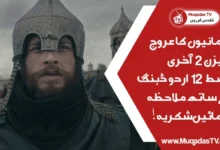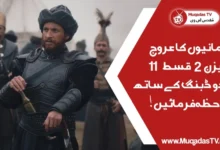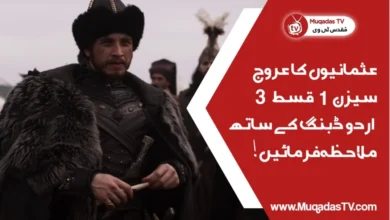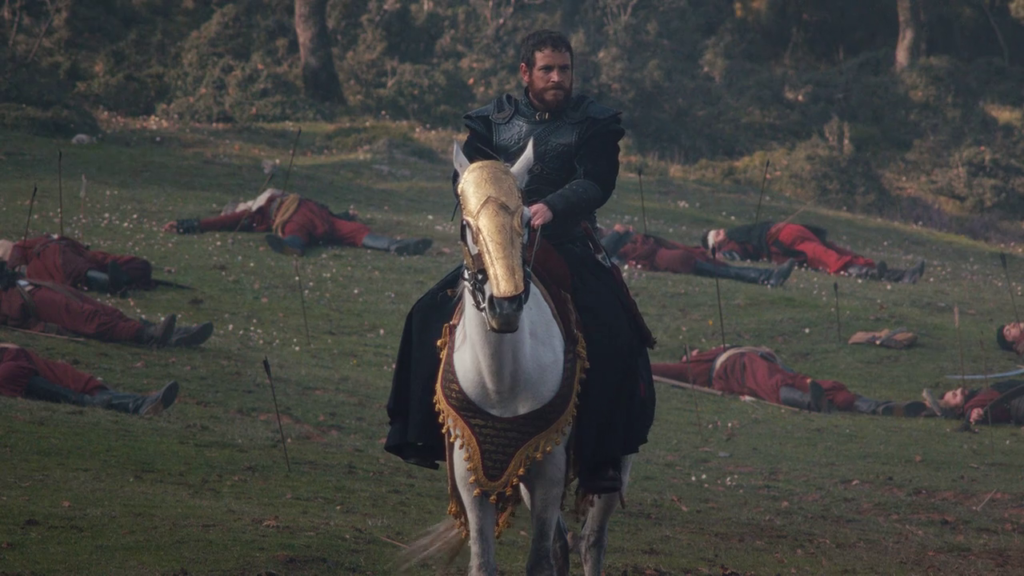
Rise of Empires: Ottoman – Episode 9 Recap (Urdu Dubbed)
Description:
Episode 9 of Rise of Empires: Ottoman delves into the continued expansion of the Ottoman Empire under Sultan Mehmed II, focusing on the years following the fall of Constantinople. As Mehmed strengthens his control over the newly renamed city of Istanbul, he sets his sights on further conquests, solidifying his legacy as one of history’s greatest military strategists. In this episode, the Urdu-dubbed version adds an extra layer of drama and emotion, capturing the complex political, military, and personal challenges faced by Mehmed and his empire.
Opening Scene: The Consolidation of Power in Istanbul
The episode opens with a panoramic view of Istanbul, now transformed from the Byzantine capital into the heart of the Ottoman Empire. Sultan Mehmed II is seen overseeing the city’s reconstruction efforts, ensuring that his vision for Istanbul as a hub of culture, commerce, and political power is coming to fruition. The Urdu dubbing adds gravitas to these scenes, capturing the magnitude of Mehmed’s task. The city, while conquered, is still recovering from the devastation of the siege, and Mehmed’s leadership is crucial to rebuilding both its physical and social structures.
The Urdu narration explains how Mehmed worked tirelessly to ensure that Istanbul would not only be the political center of the Ottoman Empire but also a thriving cultural and economic hub. Viewers are introduced to the sultan’s various policies aimed at revitalizing trade, encouraging immigration, and fostering an atmosphere of tolerance among the city’s diverse population. The voiceover adds depth to these explanations, emphasizing Mehmed’s strategic thinking and how his vision extended far beyond military conquest.
Click Here To Watch Rise Of Empires Ottoman Episode 9 Urdu Dubbing
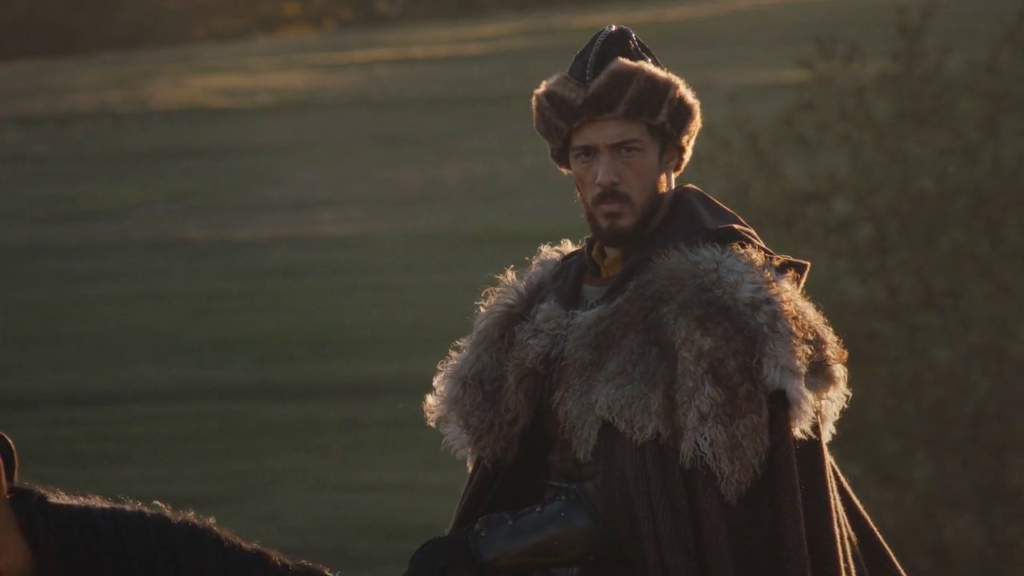
Player 1:
Player 2:
Expanding the Empire: New Conquests and Challenges
Having solidified his control over Istanbul, Mehmed turns his attention to expanding the Ottoman Empire further into Europe and Asia. Episode 9 showcases Mehmed’s military campaigns in the Balkans and his efforts to subdue rebellious territories within the empire. The Urdu dubbing intensifies the portrayal of these conquests, making the battles feel more immediate and emotionally charged. The episode shows how Mehmed’s military genius continues to be a driving force behind the empire’s expansion.
The narration provides historical context for these campaigns, explaining how Mehmed’s ambitions extended beyond Istanbul. He sought to create an empire that would rival the great powers of Europe and Asia. The Urdu voiceover helps viewers understand the significance of these conquests, detailing how each victory brought the Ottomans closer to becoming a dominant global power. Mehmed’s campaigns in Serbia, Bosnia, and Wallachia are highlighted, with the Urdu narration explaining the strategic importance of each region and how they fit into Mehmed’s larger vision for the empire.
At the same time, the episode explores the challenges that came with expansion. The Urdu-dubbed version emphasizes the complexities of governing such a vast and diverse empire. Mehmed faces resistance from local rulers, rival empires, and even factions within his own court. These moments of internal and external conflict are given added emotional weight in the Urdu dubbing, as viewers hear the tension in the voices of the characters as they navigate these difficult situations.

Mehmed’s Personal Struggles: The Weight of Leadership
While the episode focuses on Mehmed’s military and political achievements, it also delves into his personal struggles. Episode 9 portrays Mehmed as a ruler burdened by the immense responsibilities of leadership. The Urdu dubbing effectively conveys the emotional toll that comes with being a conqueror and a statesman. Viewers see a more vulnerable side of Mehmed as he grapples with the pressures of ruling an ever-expanding empire.
The Urdu voiceover highlights the personal sacrifices Mehmed has had to make in pursuit of his ambitions. His relationships with his family, advisors, and generals are explored in greater depth in this episode. The Urdu dubbing adds emotional nuance to these interactions, particularly in scenes where Mehmed reflects on the cost of his conquests. The episode shows how, despite his successes on the battlefield, Mehmed is often isolated and burdened by the weight of his decisions.
In one poignant scene, Mehmed confides in his closest advisors about his fears for the future of the empire. The Urdu dubbing captures the gravity of these moments, as Mehmed expresses his concerns about whether his successors will be able to maintain the empire he has built. This introspective side of Mehmed adds depth to his character, showing him not just as a conqueror but as a man deeply aware of the legacy he is creating.
European Response: The Rise of a New Threat
As Mehmed’s empire grows, so does the concern in Europe. Episode 9 explores the reaction of European powers to the expanding Ottoman threat. The Urdu-dubbed version vividly portrays the fear and uncertainty that Mehmed’s conquests inspire in European courts. The episode focuses on how European rulers, particularly in Hungary and the Papal States, begin to form alliances aimed at curbing Ottoman expansion.
The Urdu narration explains the geopolitical landscape of the time, making it clear that Mehmed’s ambitions were not just a regional concern but a global one. As European rulers scramble to form a united front against the Ottomans, the tension builds. The Urdu voiceover adds a sense of urgency to these scenes, as viewers hear the frantic discussions among European leaders about how to counter Mehmed’s military might.
The episode also touches on the Crusades, with the Urdu narration explaining how some European rulers saw Mehmed’s expansion as a religious threat. The idea of launching a new crusade to reclaim lost territories is discussed, adding an additional layer of complexity to the political situation. The Urdu dubbing effectively conveys the sense of desperation among European rulers as they try to come to terms with the rise of the Ottoman Empire.

The Birth of a Multicultural Empire
One of the key themes of Episode 9 is the transformation of the Ottoman Empire into a multicultural and multi-ethnic entity. Mehmed’s policies of tolerance and integration are explored in greater detail, with the Urdu-dubbed version providing insights into how these policies helped strengthen the empire. The episode shows how Mehmed actively encouraged people from different backgrounds to settle in Istanbul and other parts of the empire, fostering a sense of unity among the diverse populations under Ottoman rule.
The Urdu narration emphasizes the significance of Mehmed’s approach to governance. By embracing diversity, Mehmed ensured that the Ottoman Empire would not only survive but thrive in the long term. The Urdu voiceover highlights how this policy of inclusion helped the empire become a melting pot of cultures, religions, and ethnicities, laying the foundation for the Ottoman Empire’s future prosperity.
Conclusion: Mehmed’s Unstoppable Ambition
Episode 9 concludes with a reflection on Mehmed’s insatiable ambition. Despite having achieved so much, Mehmed’s thirst for conquest remains unquenched. The Urdu-dubbed version captures this drive, portraying Mehmed as a ruler who is constantly looking toward the next challenge. The episode ends with Mehmed setting his sights on new territories, eager to expand the Ottoman Empire even further.
The final scenes show Mehmed preparing for his next campaign, with the Urdu narration providing a sense of anticipation and excitement. Viewers are left with a clear understanding of Mehmed’s legacy as one of history’s greatest conquerors and strategists, a man whose ambition knew no bounds.
In this gripping and emotional episode, Rise of Empires: Ottoman continues to showcase the brilliance and complexity of Sultan Mehmed II, offering Urdu-speaking audiences a deeper connection to one of history’s most transformative figures.

